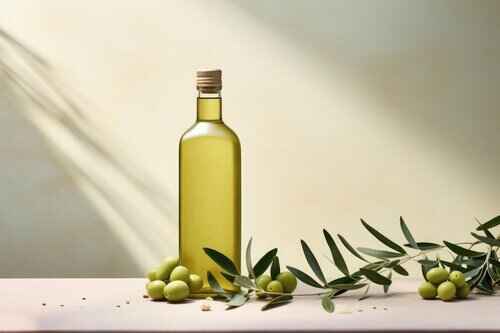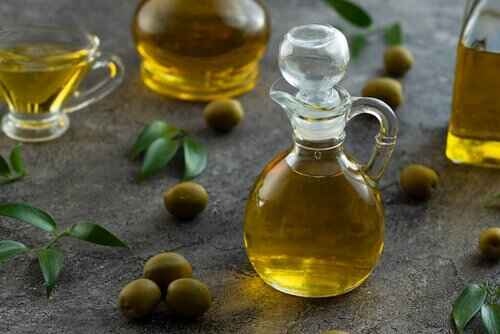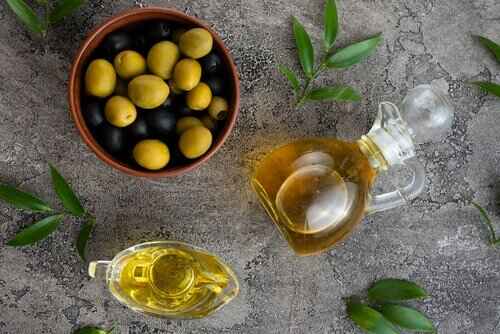
Apr 05 , 2024
In the realm of health and nutrition, olive oil stands as a revered staple, renowned for its numerous purported benefits.
However, when it comes to kidney health, the question arises: is olive oil good for kidneys?
This query delves into a complex interplay of factors, from the oil's composition to its impact on renal function.
This blog overview aims to dissect this question, providing readers with a comprehensive understanding of the potential effects of olive oil on kidney health.
We'll explore the scientific evidence supporting its benefits, such as its anti-inflammatory properties and its role in promoting cardiovascular health – a crucial aspect for kidney function.
Additionally, we'll address any potential risks associated with excessive consumption, including concerns about its high calorie and fat content.
Ultimately, by examining the available research and expert opinions, this overview seeks to offer clarity on the topic, empowering readers to make informed decisions regarding their dietary choices and kidney health.
Join us as we navigate the intricate relationship between olive oil and kidney function.

Yes, Olive oil, particularly extra virgin olive oil is good for kidneys due to several reasons.
Firstly, extra virgin olive oil is rich in monounsaturated fats and antioxidants such as oleic acid and hydroxytyrosol.
These compounds have been linked to improved heart health and may aid in managing conditions like diabetes, which are often comorbid with chronic kidney disease (CKD).
Moreover, olive oil is low in saturated fats and sodium, making it a suitable option for individuals with CKD who need to monitor their intake of these substances to prevent complications such as cardiovascular disease and hypertension.
The anti-inflammatory properties of olive oil, attributed to its high polyphenol content, are also advantageous for kidney health.
Chronic inflammation is a contributing factor to the progression of CKD, and the anti-inflammatory effects of olive oil may help mitigate this risk.
Additionally, olive oil has a lower potassium content compared to other oils, which is significant for patients with CKD who need to limit their potassium intake to prevent hyperkalemia, a condition characterized by high levels of potassium in the blood.
However, it's essential to consume olive oil in moderation. While it offers numerous health benefits, excessive intake of any oil can lead to weight gain and other health issues.
Thus, it's advisable to incorporate olive oil as part of a balanced diet and to consult with a healthcare professional or a registered dietitian to determine the appropriate amount for individual dietary needs.
In conclusion, extra virgin olive oil can be a valuable component of a kidney-friendly diet.
Its rich nutritional profile, along with its anti-inflammatory properties and lower potassium content, make it a favorable choice for individuals with CKD looking to support their kidney health while enjoying the benefits of a delicious and versatile cooking oil.

Extra virgin olive oil is good for kidney stones due to heart-healthy fat that is often praised for its beneficial properties.
However, when it comes to kidney stones, the evidence is not as clear-cut. Let’s delve into the details:

Extra virgin olive oil good for CKD patients. Let’s explore why:

Olive oil is good for dialysis patients when consumed in moderation and as part of a balanced diet.
It is a healthy source of monounsaturated fats, which can help lower bad cholesterol levels and reduce the risk of heart disease, a common concern for individuals undergoing dialysis.
Additionally, olive oil contains antioxidants and anti-inflammatory properties that may provide various health benefits.
However, it's essential for dialysis patients to be mindful of their overall fat intake, including olive oil.
Excessive consumption of fats can lead to weight gain and other health complications.
Therefore, it's crucial for patients to work closely with their healthcare providers and dietitians to determine the appropriate amount of olive oil and other dietary fats for their individual needs.
In summary, while olive oil can be part of a healthy diet for dialysis patients, moderation is key.
It's essential to incorporate a variety of nutritious foods and consult with healthcare professionals to ensure dietary choices support overall health and well-being.

Olive oil is good for high creatinine levels, as it is a healthy source of monounsaturated fats and contains antioxidants that can support overall kidney health.
Monounsaturated fats, found abundantly in olive oil, are known for their ability to improve heart health by reducing bad cholesterol levels and promoting good cholesterol levels.
This can be particularly important for individuals with high creatinine levels, as they may also be at risk for cardiovascular issues.
Additionally, olive oil's anti-inflammatory properties may help reduce inflammation in the body, potentially benefiting kidney function.
However, it's important to note that while olive oil can be part of a kidney-friendly diet, moderation is key.
Excessive intake of fats, including olive oil, can contribute to weight gain and other health issues.
As with any dietary changes, individuals with high creatinine levels should consult with their healthcare provider or a registered dietitian to determine the appropriate amount of olive oil and other foods for their specific needs and condition.
Olive oil, a staple food in mediterranean cuisine.
Additionally, olive offers many health benefits backed by scientific research.
Rich in monounsaturated fats and antioxidants, it provides protection against heart disease, inflammation and oxidative stress.
Additionally, olive oil helps reduce the risk of type 2 diabetes, stroke and some cancers.
Its anti-inflammatory properties can also reduce the symptoms of rheumatoid arthritis.
Additionally, olive oil has antibacterial properties, potentially fighting harmful bacteria such as Helicobacter pylori.
While olive oil is good for kidneys, excessive consumption of it can lead to risks such as kidney stone formation and weight gain.
So first consult your doctor before adding olive oil to your diet.
